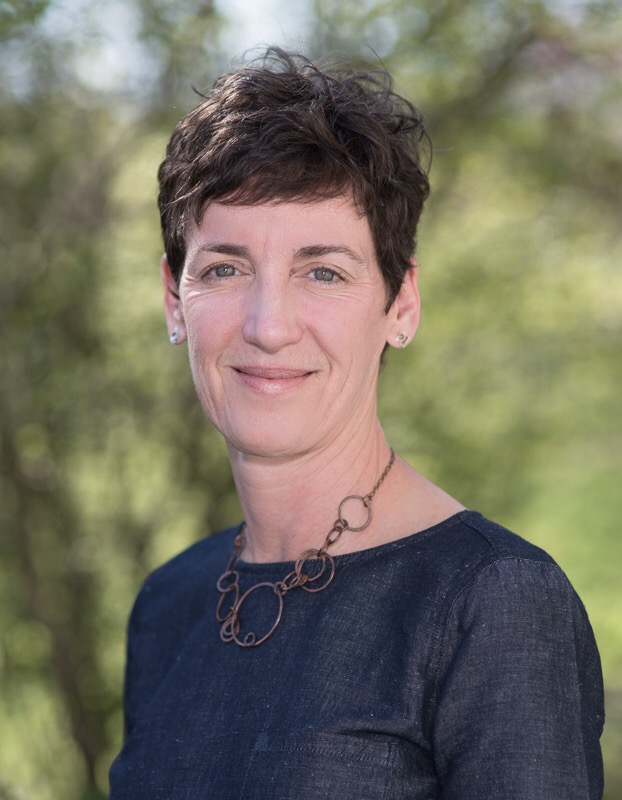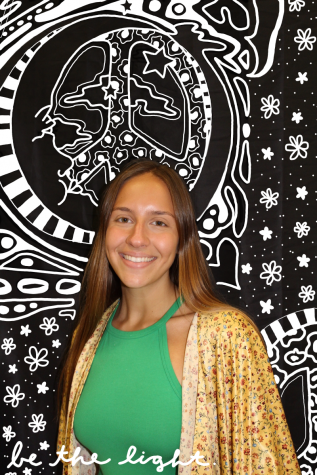Professor Mary Kearney
May 9, 2019
Feminism was coined to create a platform for women to gain the same rights as men. Somewhere along the lines this word has gained a negative connotation surrounding it, but I wasn’t sure as to why. I was eager to learn more about this word and I knew I needed to talk to someone knowledgeable in the subject of feminism Thankfully, I found Professor Mary Kearney from The University of Notre Dame.
Mary Kearney is the Director of Gender Studies and an Associate Professor of Film, Television, and Theatre at The University of Notre Dame. Between teaching students about the “sparkle” women should try and embrace and the importance of representation of women in media, she, along with many others, face adversity headon.
In her youth, Kearney’s father was in the military, so she grew up surrounded by a patriarchal society. Being brought up with a couple brothers, she remembers being more drawn to whatever they were doing compared to her older sister. Though she wanted to be around her brothers, that didn’t always fly with her parents, who were more eager to see her act like a traditional girl. “I remember getting in trouble for playing in the dirt one day. The boys played in the dirt all the time but somehow because I was a girl…I got my dress dirty…whatever.” Another one of Kearney’s early feminist memories happened to be at a hair salon, where the stylist cut it too short for her mother’s liking. ‘I remember my mom yelling; ‘She looks like a boy!’ but I just thought to myself, ‘what’s so wrong with that?’” Even despite the playing-in-the-mud and she-looks-like-a-boy incidents, Kearney’s mother’s views changed when she joined a feminist book club in the 70s. “Unbeknownst to us, she was learning about all these different feminist scholars and authors.” This gave Kearney a good feminist example to look up to right at home, which wasn’t always the case.
Do to her inspiration from her mother, Kearney made the decision to attend college at the University of Texas at Austin, describing the city as “a wonderful little bubble of diversity in such a conservative state.”
Kearney always assumed when she would go to college she would meet a guy, settle down, become a mom and have a job, though she wasn’t sure yet at that point. “But college came and went, I had boyfriends but no one stuck, and I began the working life.” She worked as a single woman for 6 years when it hit her that she “felt like my brain was gelling, and I was getting dumber and dumber.” This motivated her to go to graduate school, and her first class was with a feminist scholar. “I remember thinking, ‘This is so cool! So many of the things we’re talking about I’ve actually thought about!’” Over the course of her life up until this point, she always thought, “Why can girls do these things but not these things? Why do guys get to do it all? Overtime, it all kind of gelled together, and I became really interested in feminism.” Her interest for film studies were sparked when, in a lit class she took, she had an assignment on autobiographies. “Madonna’s film Truth or Dare had just come out, and I remember thinking what a good idea it would be to write about that for an autobiography. That got me really into film studies, and that’s when feminism and film studies came together, and there is a very long tradition of doing feminist analysis within film studies. I was interested in how women were represented in film and media, so that’s been my career path.”
Kearney was at the University of Texas at Austin for a long time, and states that, “my feminist politics there were barely a blip, I think some really conservative guy wrote an article about my Women in Media Culture class once. He said I was a “feminazi” and “inculcating” young people about feminism which is just b.s.” Kearney says that she was actually really proud of herself, because, “if you’re getting that kind of attention, I just think, ‘Well yeah, bring it on!’ I’m happy to have that conversation. If you think that women shouldn’t be equal to men, then there’s something wrong with you. Not me.”
After some time, her and her partner were looking for jobs. Kearney was interviewed and two job positions were offered, so they quickly made the move over to The University of Notre Dame. Private religious institutions aren’t a common place to find too many feminists, but Kearny states that, “there’s a group of us, though I don’t tend to announce myself as a feminist, because it can push some buttons. But I am the Director of the Gender Studies program, and gender studies wouldn’t be an academic discipline without feminism. It’s the intellectual branch of the feminist movement.” Even despite the conservative outlooks on gender equality, the Gender Studies program is coming up on their 30th year of being on campus. Being at Notre Dame has also been very rewarding, in the sense that Kearny gets to defend her views, and it’s a challenge for herself, and states that the best thing about Notre Dame is, “the mission of social justice.”
Feminism to Kearney is not only fighting for equality for the genders, but also ending oppression of all kinds based on identity and bodies. “I see feminism attached to anti-racism, and anti-homophobia. Feminism is pro-female and pro-whoever you want to be as a gendered person.”
Professor Kearney has broken down barriers at Notre Dame, taught about the importance of women in film studies and rock music, and so much more. “My favorite quote is, ‘feminism is the radical notion that women are people too.’”
Thank you to Mary Kearney for letting me interview her for The Tower. We have embedded her presentation on “Sparkle: Contemporary Girls’ Media Culture. We have also included a link to her faculty page: https://ftt.nd.edu/faculty-staff/faculty-staff-by-alpha/mary-celeste-kearney/



